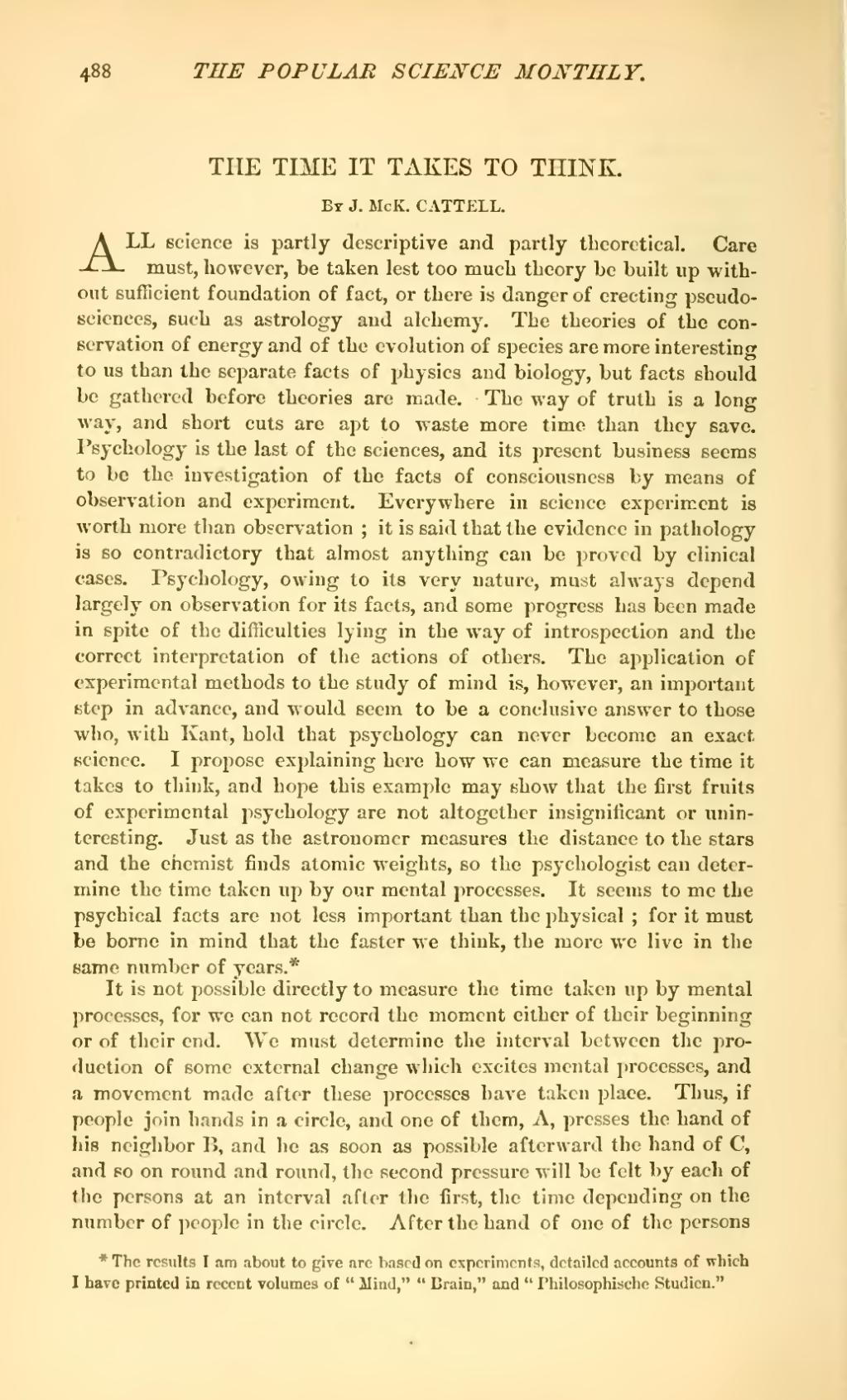| THE TIME IT TAKES TO THINK. |
By J. McK. CATTELL.
ALL science is partly descriptive and partly theoretical. Care must, however, be taken lest too much theory be built up without sufficient foundation of fact, or there is danger of erecting pseudo-sciences, such as astrology and alchemy. The theories of the conservation of energy and of the evolution of species are more interesting to us than the separate facts of physics and biology, but facts should be gathered before theories are made. The way of truth is a long way, and short cuts are apt to waste more time than they save. Psychology is the last of the sciences, and its present business seems to be the investigation of the facts of consciousness by means of observation and experiment. Everywhere in science experiment is worth more than observation; it is said that the evidence in pathology is so contradictory that almost anything can be proved by clinical cases. Psychology, owing to its very nature, must always depend largely on observation for its facts, and some progress has been made in spite of the difficulties lying in the way of introspection and the correct interpretation of the actions of others. The application of experimental methods to the study of mind is, however, an important step in advance, and would seem to be a conclusive answer to those who, with Kant, hold that psychology can never become an exact science. I propose explaining here how we can measure the time it takes to think, and hope this example may show that the first fruits of experimental psychology are not altogether insignificant or uninteresting. Just as the astronomer measures the distance to the stars and the chemist finds atomic weights, so the psychologist can determine the time taken up by our mental processes. It seems to me the psychical facts are not less important than the physical; for it must be borne in mind that the faster we think, the more we live in the same number of years.[1]
It is not possible directly to measure the time taken up by mental processes, for we can not record the moment either of their beginning or of their end. We must determine the interval between the production of some external change which excites mental processes, and a movement made after these processes have taken place. Thus, if people join hands in a circle, and one of them. A, presses the hand of his neighbor B, and he as soon as possible afterward the hand of C, and so on round and round, the second pressure will be felt by each of the persons at an interval after the first, the time depending on the number of people in the circle. After the hand of one of the persons
- ↑ The results I am about to give are based on experiments, detailed accounts of which I have printed in recent volumes of "Mind," "Brain," and "Philosophische Studien."

